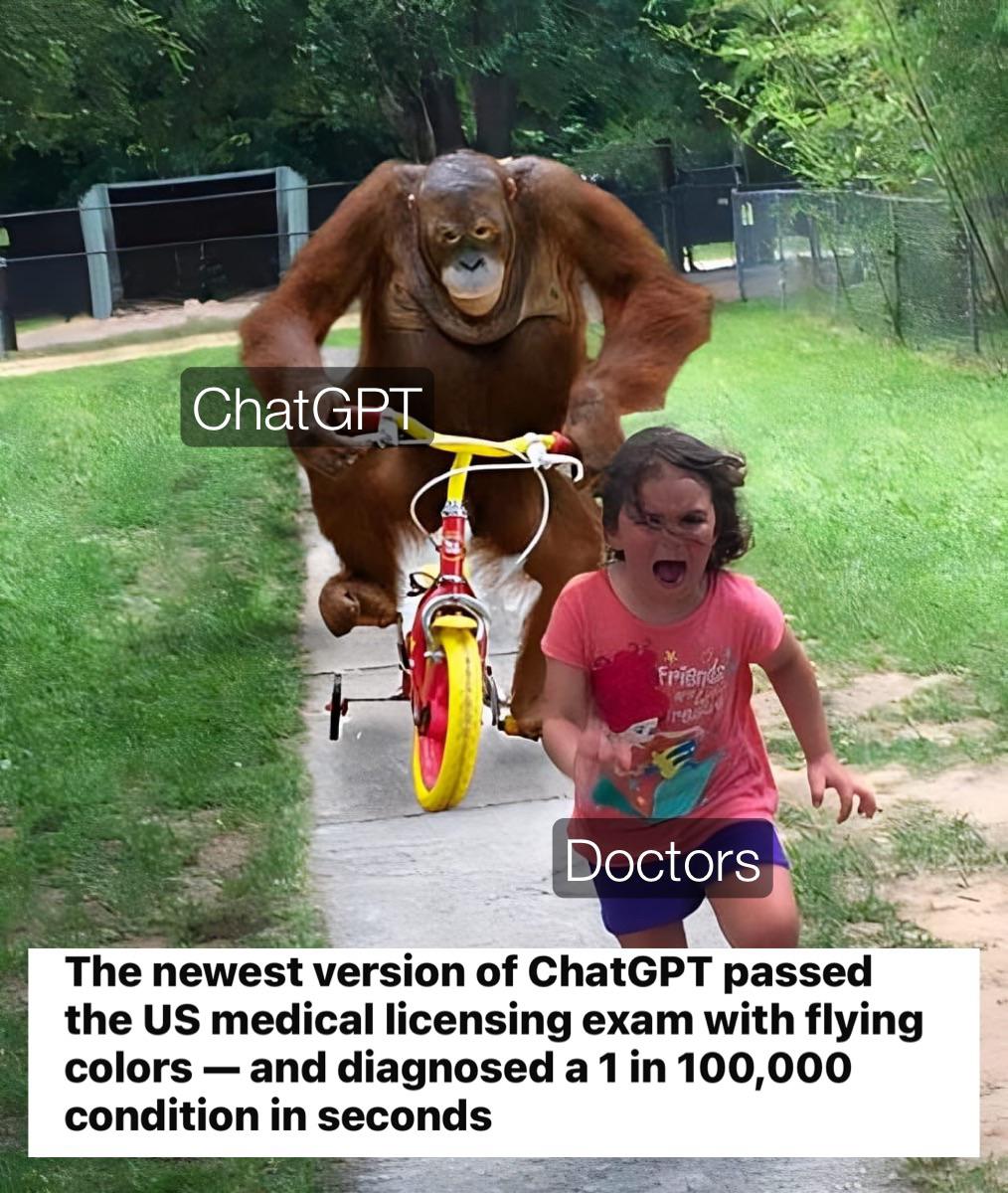this post was submitted on 20 Jun 2023
18 points (82.1% liked)
Memes
45587 readers
1303 users here now
Rules:
- Be civil and nice.
- Try not to excessively repost, as a rule of thumb, wait at least 2 months to do it if you have to.
founded 5 years ago
MODERATORS
you are viewing a single comment's thread
view the rest of the comments
view the rest of the comments

This is a big flashy headline that isn't as big of a deal as it presents itself. AI is still extremely far from assisting doctors, let alone replacing them.
"Diagnosis a 1 in 100,000 condition in seconds" is an absolutely meaningless statement.
What was the condition? Does it present with vague and difficult to assess symptoms or does it have a pathognomonic clinical sign that identifies it immediately, or is it somewhere in between? Did the AI diagnose it correctly, if so was it on the first try? Is it repeatable, could it diagnose it again? How prone is it to false positives, can we be sure it wouldn't diagnose a healthy patient or a patient with a similarly presenting problem? What about false negatives? It caught it this time, do we know how many times it missed it? What about a treatment plan? Does it know how best to treat it and can it work to personalize a treatment to fit that patient specifically with any comorbidities or conflicting medications taken into account? When planning treatments does it stick strictly the drug label or does it factor in published research on dosing?
Why does it have to be perfect to be useful? I could just throw ideas at the real doctor, who then decides what is actually the most reasonable thing.
I never said it can't be useful, just that it isn't very useful right now and it certainly isn't going to replace doctors any time soon. I said it in another comment that eventually I think AI will be a tool that could be used to help doctors.